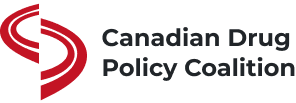A misinformation campaign around public use legislation distracts from real solutions
January 31, 2024 | One year ago today, British Columbia decriminalized personal possession of small amounts of some drugs in limited locations in a three-year pilot project. Since then, an organized political campaign has spent time and money to cloud public perception and discredit evidence-based efforts. Let’s cut through the rhetoric and talk about what is and isn’t working with decriminalization, and what a better way forward could be.
It’s understandable people are concerned, as drug poisoning deaths reach their highest-ever levels: with 2511 deaths last year alone, communities across B.C. feel the impact of this crisis. Under decriminalization, adults carrying up to 2.5 grams of opioids, cocaine, methamphetamine and MDMA in specific places will not be subject to criminal charges: police cannot seize their drugs, arrest or charge them for simple possession. Instead, they are directed to services. The pilot excludes schools, childcare facilities, playgrounds, splash pads and skate parks, among other locations. Decriminalization has support amongst public health and policy experts, including B.C.’s provincial health officer and chief coroner.
Decriminalization reduces incarceration, police involvement, stigma, and disconnection from services – all of which drive harm and overdose. In that regard, it is working. From February to June 2023, B.C. possession offences fell 76 per cent, diverting hundreds of people from the criminal justice system. But decriminalization is just one tool, and the driving forces behind overdose, homelessness and public use remain unaddressed. Critically, decriminalization does not address the toxicity of the unregulated drug market repeatedly recommended by experts, including the BC Coroners Service Death Review Panel. Waits for detox remain weeks-long and gold standard substitution options remain widely inaccessible. To top it off, actors within the unregulated private treatment industry continue to evade accountability for their response to allegations of misconduct, deaths and political scandal.
If you think you are seeing more unhoused people than ever, you’re right – but not because of decriminalization. While drug use rates remain stable, homelessness has risen considerably: up 32 per cent across 11 Lower Mainland communities and 65 per cent in Surrey. Some critics wrongly attribute these worsening social issues to decriminalization. Content creators, treatment industry lobbyists and municipal mayors alike have blamed the policy for alleged spikes in public drug use, fuel for a politicized assault.
But decriminalization cannot build homes; open supervised consumption sites; undo decades of housing divestment; reverse generational traumas of colonization; create responsive health care systems; or influence the unregulated drug market. If the government was serious about tackling the drug poisoning crisis and finding solutions to public drug use, there are clear places to start. Scaling up permanent welfare-rate housing and renewing modular housing leases would reduce visible poverty. Opening overdose prevention services in every community, per the still-unfulfilled 2016 Ministerial Order, would create safer indoor spaces for use while facilitating access to healthcare and treatment, reducing emergency costs, and improving neighbourhood cleanliness. Most importantly, B.C. could prevent deaths by responsibly regulating the drug supply to standardize content, access and use, all while increasing tax revenue and diverting hundreds of millions of dollars of profit from organized crime.
Although evidence-based solutions exist, the government is choosing reactionary politics to push the poorest people in society out of voters’ line of vision. Despite existing limits on decriminalization, the Province introduced Bill 34, which encourages racist and anti-poor stereotyping, ordering police to remove people from public spaces based on suspected rather than observed drug use. Pushing unhoused people into isolation will increase overdose deaths and countless other social harms. So if you are upset about rising poverty and death despite decriminalization, please redirect your anger toward the politicians who care more about getting re-elected than building healthy, happy communities.
Authors: Anmol Swaich, SUDU (Surrey Union of Drug Users) Sarah Lovegrove, the EIDGE (Eastside Illicit Drinkers Group for Education) and Aaron Bailey
Anmol Swaich is a MSc student and Research Assistant in the Faculty of Health Sciences at Simon Fraser University and a Community Organizer with Surrey Union of Drug Users.
Sarah Lovegrove is a registered nurse and member of the Harm Reduction Nurses Association.
Aaron Bailey holds a Master of Science in Health Promotion from Queen’s University, serves as Program Coordinator at the Eastside Illicit Drinkers Group for Education (EIDGE) and supports operations of the VANDU Overdose Prevention Site.

Leave a Reply